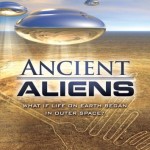 Tom Horn alerted me that the bioethics news site Bio Edge ran an essay “Transhumanism: the theologians” posing some interesting but troubling issues. The article presents an ethical dilemma: should mankind use biotechnology to create superior beings i.e. posthumans.
Tom Horn alerted me that the bioethics news site Bio Edge ran an essay “Transhumanism: the theologians” posing some interesting but troubling issues. The article presents an ethical dilemma: should mankind use biotechnology to create superior beings i.e. posthumans.
Transhumanism, at least in the Journal of Medical Ethics, has a distinctly theological flavour. In recent weeks several bioethicists have been debating vigorously in its pages about whether homo sapiens will achieve salvation by transcending himself, what the responsibilities of a transcendent being would be towards homo sapiens, and whether it is moral to create a transcendent being. It is vaguely reminiscent of mediaeval disputes about the genus and species of angelic beings and inquiries into God’s motives in creating the human race. [1]
By asking “whether homo sapiens will achieve salvation by transcending himself?” he begs the question of “what is meant by salvation?” and “saved from what?” Of course, the answer from a theologian would be the wrath of God against sin (Ro 1:18) but it is not exactly clear what the author, Micheal Cook, has in mind. I have argued that transhumanism is not compatible with Christianity here here and here.
The rest of the brief article juxtaposes the views of Nicholas Agar, Thomas Douglas and Michael Hauskeller. However, our first task is to challenge the title of the article, who exactly is being called a “theologian” and what sort of theology do they represent? In truth, none of the thinkers mentioned are theologians, they are all secular philosophers and it is not clear that one of them is even a theist. Thus, the article’s title is an absurdity; this is not theological discourse rather purely secular bioethics.
Of the three secular bioethicsists, two think creating posthumans is good idea (Michael Hauskeller corrected me below, he argues “neither are there sufficient grounds to expect radically enhanced human beings to have a higher moral status than unenhanced human beings, nor would it, even if they did, be morally wrong to bring about their existence.”) Douglas also argues it is not morally wrong. Agar takes the more sober position that it would be an extremely dangerous project. Of course, I think he is right but for the wrong reasons. First, I agree with Hauskeller that posthumans would not have a higher moral status, in fact, below I argue the opposite. Agar argues, “We should look upon moral status enhancement as creating especially morally needy beings. We are subject to no obligation to create them in the first place. We avoid creating their needs by avoiding creating them.”[2] I think this is somewhat correct but the problem is not that a genetically engineered human pumped up on drugs and other forms of enhancement would just be morally needy, rather that they would likely be hyper-depraved. Often, secular philosophers cannot reach the correct answers in these sorts of questions because they start with the wrong presuppositions. I believe this is a prime example.
Let’s assess the issue based on God’s revealed truth. Humanity is fallen and sinful. While Jesus recognized people can be good (Mt 22:10), he called his own disciples evil men (Mt 7:11). Without divine grace, the mind is affected (Rom. 1:28; Eph. 4:18). This isn’t a matter of making a few mistakes rather a fundamental ontology. The heart is deceitful (Jer. 17:9), the conscience is impure (Heb. 9:14), and humanity is naturally subject to wrath (Eph. 2:3). From a biblical perspective, this aggregate depravity affects the inner being and is the root of evil actions (Mark 7:20–23). Paul employs the Old Testament to demonstrate that this condition is universal and complete:
“as it is written:
“None is righteous, no, not one;
no one understands; no one seeks for God.
All have turned aside; together they have become worthless;
no one does good, not even one.”
“Their throat is an open grave; they use their tongues to deceive.”
“The venom of asps is under their lips.” “Their mouth is full of curses and bitterness.”
“Their feet are swift to shed blood; in their paths are ruin and misery,
and the way of peace they have not known.”
“There is no fear of God before their eyes.””
~Romans 3:10-18
The transhumanism project asserts that starting from this state of affairs; we should turn up the volume. That is the height of human arrogance and stupidity. We do so at our peril and it brings to mind “And if those days had not been cut short, no human being would be saved. But for the sake of the elect those days will be cut short.” (Mt 24:22)






